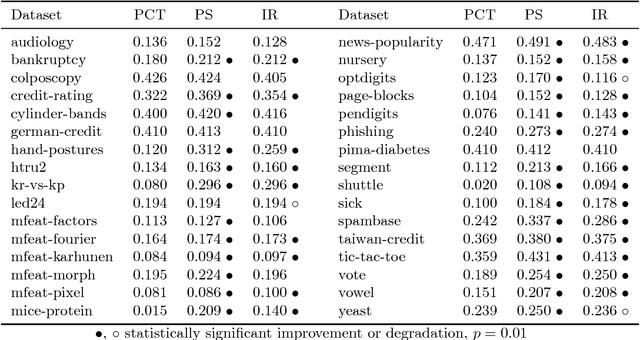Probability Calibration Trees
Paper and Code
Sep 14, 2018



Obtaining accurate and well calibrated probability estimates from classifiers is useful in many applications, for example, when minimising the expected cost of classifications. Existing methods of calibrating probability estimates are applied globally, ignoring the potential for improvements by applying a more fine-grained model. We propose probability calibration trees, a modification of logistic model trees that identifies regions of the input space in which different probability calibration models are learned to improve performance. We compare probability calibration trees to two widely used calibration methods---isotonic regression and Platt scaling---and show that our method results in lower root mean squared error on average than both methods, for estimates produced by a variety of base learners.
 Add to Chrome
Add to Chrome Add to Firefox
Add to Firefox Add to Edge
Add to Edge